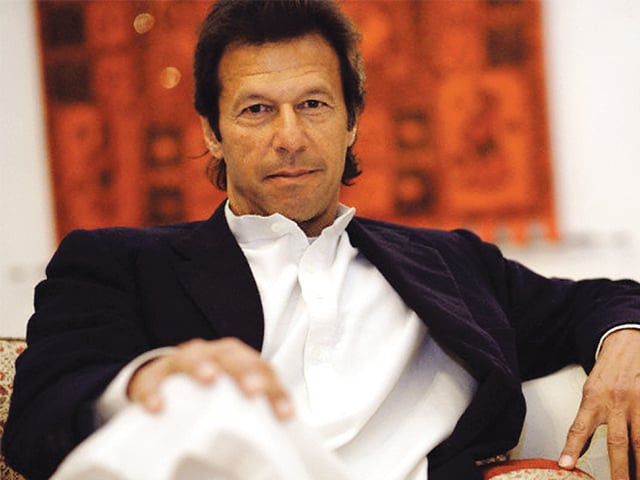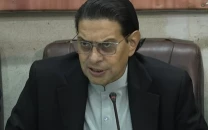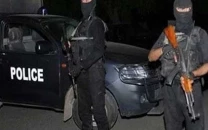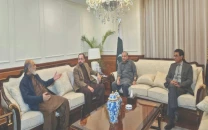World Economic Forum - Imran Khan: The face of Pakistan at Davos
Khan addresses a bewildered Western audience, who mostly showed up to get a good look at their favourite cricket star.

The most prominent Pakistani at Davos is Pakistan Tehrik-e-Insaaf chief Imran Khan who was the guest speaker at a lunch hosted by defence analyst Ikram Sehgal, who runs a security company in Pakistan.
“The moment Nato leaves Afghanistan, things will settle down. There will be peace and then we can deal with the terrorists,” Khan tells a bewildered Western audience, who mostly showed up to get a good look at their favourite cricket star.
Speaking about Pashtuns, he said it was important to make a distinction between al Qaeda and the Taliban who are Pashtuns and the Pashtuns should not be attacked. “You must understand the Pashtun mentality. If you kill them (with drone attacks) they will take revenge, so there will be repercussions,” he said. “There are human beings and then there are Pathans,” he joked.
“The Pashtuns of Pakistan and Afghanistan are not a threat to the West, al Qaeda is,” he said to a sceptical audience.
Khan explained that Salmaan Taseer’s murder had exposed the extreme polarisation in society. “If the war on terror continues and the US keeps pressuring Pakistan to flush out Taliban militants, this polarisation of society will be detrimental,” he said.
Apart from his well-known stance on the war on terror, Khan advocated that the present government had lost its moral authority and the time was ripe for change. He warned that if the present “corrupt set up” is tolerated, there may be a revolution made up of young Pakistanis under the age of 30.
“After the National Reconciliation Ordinance was promulgated, the biggest crooks formed the government,” he said, while referring to the country’s top political leadership. He predicted that in the next general election, which he believes will be free and fair, all “the old political faces will be wiped out”.
But Khan also insisted that any form of democracy is better than dictatorship. “I supported Musharraf in the beginning and I admit that it was the biggest mistake I have ever made,” he said. Later in the day, Khan shared panel space with the Indian Union Home Minister P Chidambaram, who forcefully stated that terrorists must be dealt with sternly and there should be swift punishment for those found guilty.
Chidambaram maintained the traditional Indian foreign office line that there are “home-grown modules in India that get support from across the border.”
On a panel titled “The reality of terrorism”, Chidambaram made it quite clear that India was not willing to show flexibility on the issue of terrorism, putting a dampener on the upcoming India-Pakistan secretary level talks at Thimpu.
Another panellist, Tahirul Qadri called upon the West and India to recognise the “root causes” of terror and to immediately resolve outstanding disputes such as Kashmir. However, Chidambaram shot back, “none of the issues (Kashmir or the territorial dispute between Israel and Palestine) justify use of terror. This is not the way civilised societies settle their disputes.”
But Khan insisted that the root cause of terror must be dealt with. “The cancer must be treated and not its symptoms,” he said.
While the security debate dragged on at Davos, it was quite clear that no one – those asking questions or those answering them – had found a fresh approach to deal with problems in Pakistan. The same questions were asked and the familiar rhetoric was repeated.
While back in Pakistan’s semi-autonomous areas, the tribal lashkars and paramilitary forces battle Taliban militants, it seemed like our leadership was making no effort to engage powers of the world on platforms such as the World Economic Forum where perhaps sympathetic ears would have helped. A Pakistani delegation well-prepared to plead their case and defend their position regarding the war against militancy should have been sent. Instead, what the World Economic Forum saw was a cricketer-turned-politician advocating a view that not necessarily represents the official line taken by the government of Pakistan.
Published in The Express Tribune, January 30th, 2011.



















COMMENTS
Comments are moderated and generally will be posted if they are on-topic and not abusive.
For more information, please see our Comments FAQ